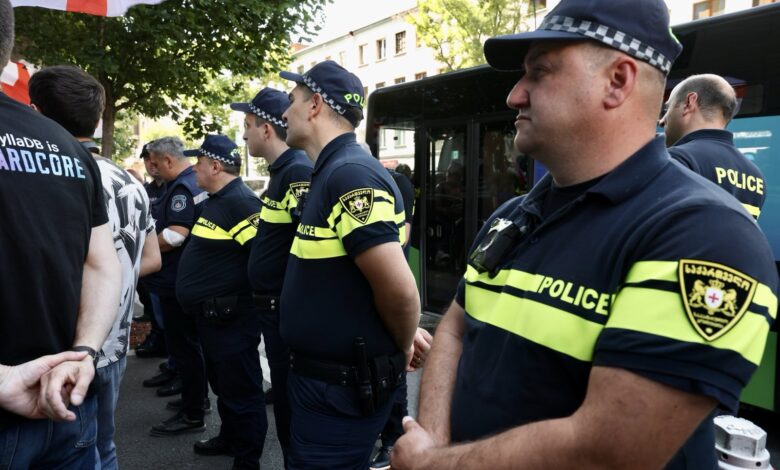
Interior Ministry Rejects Political Targeting in Drug Roundups
Georgia’s Interior Ministry said 314 people were tested for drugs across the country over the past week, rejecting claims that only protesters or opposition members were targeted. It called such claims a “false campaign” aimed at “misleading society.”
“The police cannot single out nor can it exclude a person based on their political views, which is itself not an indulgence for anyone,” the ministry said in a July 9 statement, released a day after reports emerged of activists and opposition party members being rounded up for drug testing.
Calling for an end to what it called “disinformation” surrounding the issue, the ministry said, “All police actions, including drug checks, aim to combat the spread of narcotics and serve the best interests of our society.”
According to the ministry, of the 314 individuals tested, 240 tested positive, while 23 refused testing. The ministry said both those who tested positive and those who refused will be fined for drug use under legislation that allows for fines or administrative detention in such cases.
“We also call on media representatives to not only avoid obstructing our work, but also to share responsibility in the fight against narcotics, where accurate reporting plays a special role,” the ministry added.
Since the evening of July 8, several activists, including members of the opposition Lelo party, have reported being approached by police for drug checks, which Georgian Dream government critics claim are a new form of intimidation. On July 9, additional reports emerged of drug checks targeting members of the opposition Girchi-More Freedom party.
Also on the night of July 8, the Interior Ministry arrested 34 people across Georgia on drug-related charges. According to GD Interior Minister Gela Geladze, the arrests included both Georgian and foreign citizens, and the charges ranged from possession to dealing.
The Georgian Dream government has intensified its anti-drug rhetoric and tightened drug policies as part of its declared “uncompromising” fight against narcotics.
During its extraordinary sessions on July 2, the GD parliament rushed through legislative changes that criminalized the purchase and possession of more than five grams of marijuana, punishable by up to six years in prison.
In a separate move, GD MPs also banned private entities from providing opioid replacement therapy and prohibited the import and wholesale of psychotropic substances by private entities.
Also Read:
- 28/05/2025 – Kobakhidze Appoints New Interior Minister
- 18/03/2025 – GD to Introduce Forced Treatment of Drug Crime Convicts
- 11/03/2025 – GD Announces Tougher Drug Policy
- 17/08/2023 – Local Watchdog on Drug Policy Trends in 2022 Reveals Continued Emphasis on Punitive Measures
This post is also available in: ქართული